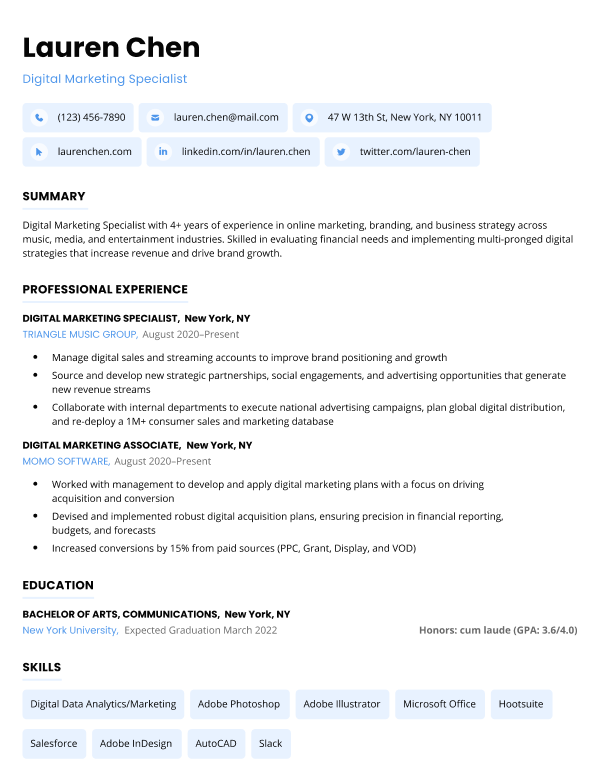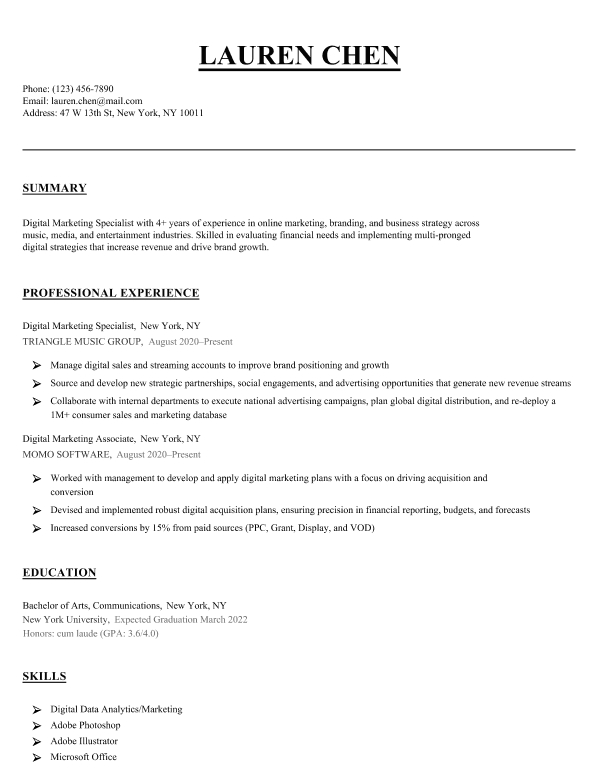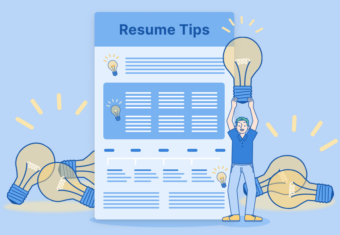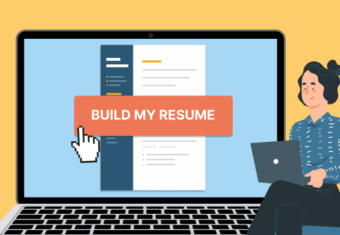Should you include study abroad experience on your resume?
Yes, you should include study abroad experience on your resume if you’re a recent college graduate or your experience is highly relevant to the position.
There are many instances when an experience you had during your study abroad program is relevant to a job. For example, you may have completed an internship, research program, language study, or volunteer work while living outside of your home country.
Studying abroad also demonstrates that you’re independent and open-minded — two soft skills valued by employers because they make you easier to work with.
However, if you’re already many years into your career, you probably have more relevant professional experience to put on your resume. If this is the case for you, don’t include study abroad experience when you write your resume.
Our free-to-use resume builder can make you a resume in as little as 5 minutes. Just pick the template you want, and our software will format everything for you.
Where to put study abroad on a resume (3 sections)
There are three parts of your resume where you can put study abroad experience:
1. Education Section – If you chose a specific school because it offered a specialized program, list the school and what you studied there in the education section of your resume. This shows employers that you’re devoted to your field and are eager to travel across oceans to advance your training.
2. Experience Section – If you completed an internship, important research project, volunteer opportunity, or just a regular job during your time abroad, you should list it in your resume’s experience section.
3. Skills Section – If you gained any concrete skills during your semester abroad, list them in your resume skills section. For instance, if you improved your Spanish skills while completing an intensive language program in Mexico, mention that in your skills section.
For an example of how to put study abroad on your resume, watch our video below where career expert Eva shows you everything you need to know about writing your education section:
How to put study abroad on your resume?
Now that you know where to place study abroad experience on your resume, you need to know how to write about your study abroad experience.
Education Section
The easiest way to list study abroad experience on your resume is by including the school you attended in your resume education section.
Even if you didn’t graduate from the school, list the university you attended while abroad, the program you attended, and the dates you were there for. This information informs employers when you were abroad and why.
Here’s an example of how to list study abroad experience in your education section:
Experience Section
Your experience section is where you should highlight your specific accomplishments while abroad. This could be a scholarly or volunteer opportunity, an internship, work you did at a think tank, or a research project you completed for your program.
Including information about your study abroad in your experience section is a great way to make your experience look more diverse, and show employers that you didn’t spend all your time abroad just partying.
Here’s an example of how to showcase the experience you gained during your study abroad:

Skills Section
If you gained any hard or soft skills while abroad, list them in your skills section. In most cases, this applies to any language skills you gained during your program. However, any specific job skills you picked up are great additions to your resume.
Just remember to target your skills to the specific job you’re applying for. For instance, if you’re applying for an accounting position, the wine tasting classes you took in New Zealand aren’t relevant to the position, and should be left off your resume.
Here’s an example of how to list study abroad experience in your resume skills section:
![]()
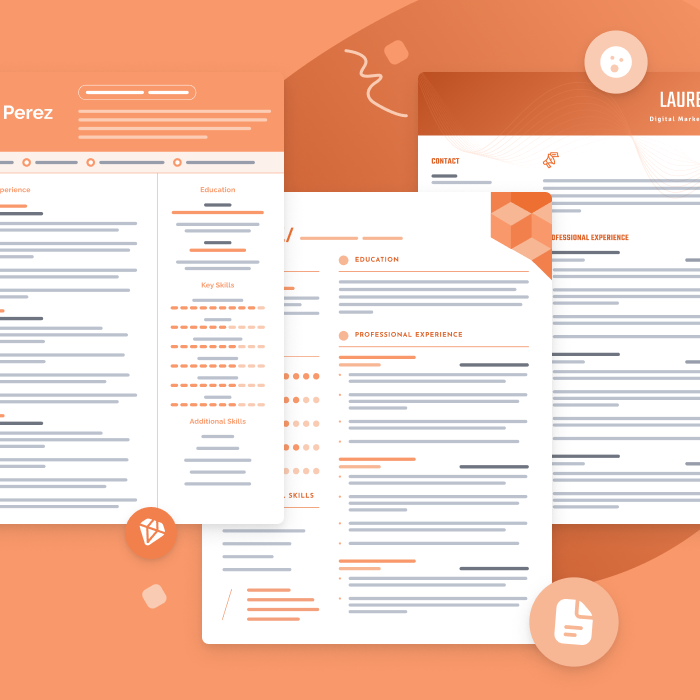
The best resume templates for 2024
One of the best ways to make your resume is by filling out one of our free resume templates. All our templates are designed by experts and free to download for Microsoft Word or Google Docs.
Click to rate this article
4.3 Average rating


